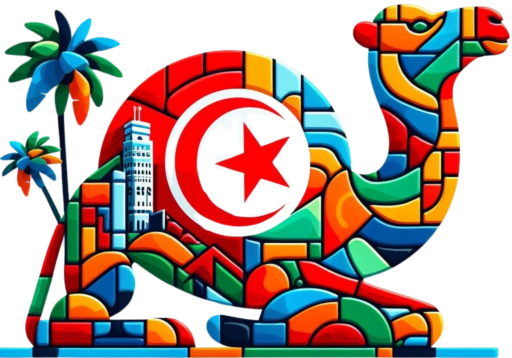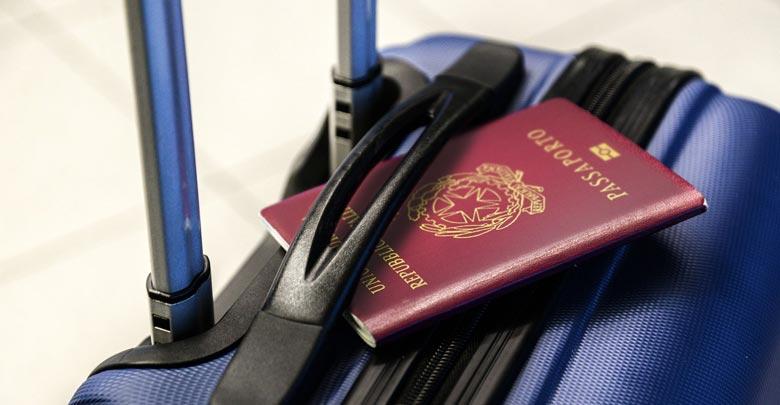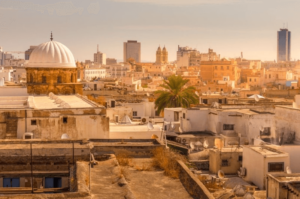Do I need a passport to go to Tunisia? Although some Tour Operators, who sell expensive packages where everything is already organized, allow travel with only an Italian identity card, in reality Tunisia is a non-European country, so for the trip it is certainly necessary to have a passport with at least 90 days left of validity. Traveling in total safety is why we also recommend leaving with a passport.
Another thing to know is that the Tunisian Border Police does not accept copies of identity documents of any kind, not even those certified as true to the original.
Whatever means of transport you have chosen to arrive in Tunisia (plane or ferry), the on-board assistants will give you a form to fill out where you will be asked for your personal details and the reason for the trip, which you will then be able to return directly to the Border Police once they arrive on Tunisian soil. A trip of less than 90 days, for tourism purposes, does not require anything else.
If, on the other hand, you intend to stay longer than the 90 days normally granted to all non-residents, it will be necessary to request a residence permit from the Police, accompanied by reasons.
If you are a foreign citizen residing in Italy, on the other hand, even if you will travel with a tour operator, you will necessarily need a passport. Furthermore, depending on the country in which you are a citizen, you may also need an entry visa: although at the moment Tunisia allows entry without a visa to citizens of 97 countries of the world, it is always a good idea to inform yourself well in advance as nearest Tunisian consulate and assess any requirements.
VACCINATIONS AND HEALTH INFORMATION – Do you need a passport to go to Tunisia?
In addition to the vaccination against Covid-19, which we will discuss shortly, no other vaccinations are currently required for entry into Tunisia.
The use of the mask and social distancing is required, so we suggest you start from Italy already supplied.
Since 1 July 2022, the Italian borders have been reopened towards some non-European countries, including Tunisia.
As reported on the Italian website of the Ministry of Foreign Affairs and International Cooperation (which we invite you to consult to be sure of all the latest updates that may have been published after the publication of this article), although Italy does not no longer request the Green Pass from 1 June 2022, instead from 26 February 2022 Tunisia requires all incoming travellers:
- Adults with completed vaccination cycle: complete vaccination certificate or vaccination passport attesting the vaccination was performed at least 28 days before (in the case of vaccination with the “Janssen” vaccine) or 7 days before (all other vaccinations);
- Adults with NOT completed vaccination cycle: certificate of negativity to COVID-19 performed 48 hours before boarding with RT – PCR test (nasopharyngeal swab) or even just 24 hours if performed by antigen test (TDR-Ag);
- Minors: exempt from certification.
In any case, sample tests for Covid-19 (both rapid and antigenic) can be carried out on arriving travellers.
- Asymptomatic positives will have to carry out 5 days of self-isolation.
- Symptomatic positives will have to carry out 7 days of self-isolation.
- Minors, whether accompanied (by fully vaccinated subjects) or not, are exempt from the mandatory quarantine.
Here is the list of hotels indicated by the Tunisian Ministry of Health for when mandatory quarantine is required upon arrival in Tunisia.
Since 22 December 2021, the vaccination certificates issued by the Tunisian portal EVAX have been recognized in Italy and in the European Union. The European health pass can be downloaded from the citizens area of the EVAX platform.
It is possible to consult the list of laboratories that carry out the RT-PCR test in Tunisia on a portal from which it is also possible to book an appointment.
To report suspicious cases, you can contact SAMU 190 in Tunisia.
SAMU is a Medical First Aid service, so we absolutely recommend you not to contact them “by mistake”, since it corresponds to our 112, which is instead the single number for emergency calls valid throughout Europe (therefore not in Tunisia ).
For information, the Ministry website recommends calling 0021680101919.
For reports it is also possible to write to the e-mail addresses: consolare.tunisi@esteri.it and assistenza.tunisi@esteri.it
For any other need, always remember that there is the Italian Embassy in Tunis which has its own specific page regarding the recommendations concerning the Covid-19 from which we have drawn the information that we have summarized for you here.
There is also a generic Vademecum from the Farnesina which is also valid for other destinations, if you feel the need to increase the safety of your travels. As already linked above, for this article we informed ourselves for you on the Viaggiare Sicuri website of our Ministry of Foreign Affairs and International Cooperation.
WHAT TO DECLARE ON THE OUTPUT
Although it is not something that the common tourist has to worry about, we also recall in this article that, according to the official website of the Tunisian Customs Administration, if you bring sums exceeding 8,000 euros (25,000 DT, Tunisian dinars) with you, they must be declared.





